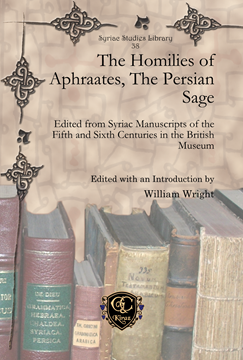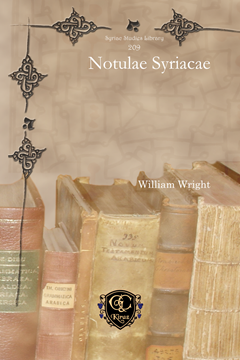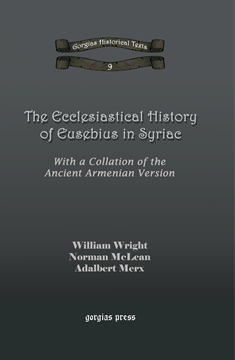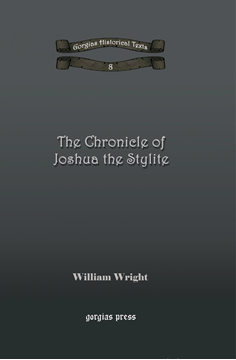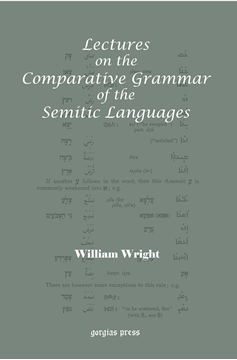William Wright
The Homilies of Aphraates, The Persian Sage
Edited from Syriac Manuscripts of the Fifth and Sixth Centuries in the British Museum
Edited with an Introduction by William Wright
Series: Syriac Studies Library 38
ISBN: 978-1-60724-897-2
Wright’s edition of the homilies of the early Syriac father, Aphrahat, includes the text, critical apparatus, and notes on biblical citations, which are also indexed. The preface surveys Aphrahat’s life and deals with the manuscripts used.
$248.00 (USD) $148.80 (USD)
Notulae Syriacae
Series: Syriac Studies Library 209
ISBN: 978-1-61143-592-4
William Wright presents here the Syriac text and English translation of extracts from a manuscript containing a previously unknown recension of the text “Secular Laws of the Emperors Constantine, Theodosius, and Leo.”
$34.00 (USD) $20.40 (USD)
The Book of Kalilah and Dimnah
Translated from Arabic into Syriac
Edited with an Introduction by William Wright
Series: Syriac Studies Library 6
ISBN: 978-1-60724-843-9
This second Syriac version of the famous collection of fables of Indian origin was translated from the Arabic version of ibn al-Muqaffa‘. Wright gives the Syriac text with notes, a lengthy introduction, and select glossary.
$218.00 (USD) $130.80 (USD)
The Ecclesiastical History of Eusebius in Syriac
Series: Kiraz Chronicles Archive 9
ISBN: 1-59333-041-3
The Ecclesiastical History of Eusebius of Caesarea, who flourished in the fourth century, has long been considered a landmark in Christian historiography. Written originally in Greek, a Syriac translation appeared during or shortly after the lifetime of the author.
$191.00 (USD) $114.60 (USD)
The Chronicle of Joshua the Stylite
Series: Kiraz Chronicles Archive 8
ISBN: 1-59333-014-6
This standard edition of the Chronicle, composed in AD 507, is considered one of the most valuable authorities for the period with which it deals. The manuscript from which the text is derived is a palimpsest copied between 907 and 944.
$133.00 (USD) $79.80 (USD)
Lectures on the Comparative Grammar of the Semitic Languages
With a New Introduction by Patrick Bennett
ISBN: 1-931956-12-X
Wright's Lectures are packed not only with data, but with carefully drawn conclusions. It would behoove us to take these into account before drawing our own.
$105.00 (USD) $63.00 (USD)
Short History of Syriac Literature
ISBN: 0-9713097-5-2
The 1887 edition of Encyclopedia Britannica contained an extensive article on Syriac Literature by the late Professor W. Wright. The article was later reprinted in this book, with additional notes.
$104.00 (USD) $62.40 (USD)

